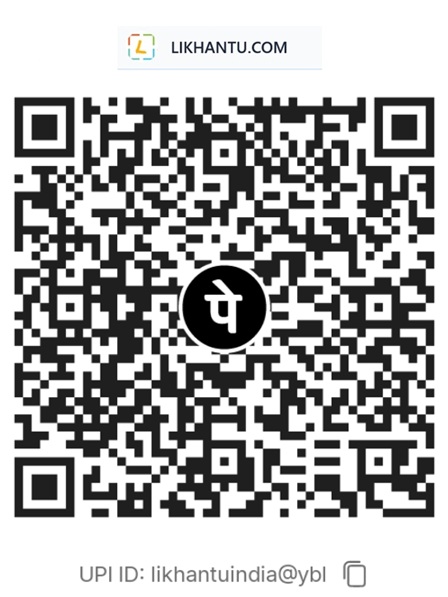Thesis: The Metaverse: An Exploration of Its Technological Foundations, Socioeconomic Impacts, and Future Potential
---
#### Abstract
The metaverse, a collective virtual shared space created by the convergence of virtually enhanced physical reality and physically persistent virtual spaces, is poised to redefine the landscape of digital interaction. This thesis delves into the technological foundations of the metaverse, examines its socioeconomic impacts, and explores its future potential. By analyzing current developments, industry trends, and theoretical frameworks, this research aims to provide a comprehensive understanding of the metaverse and its implications for society.
---
#### Table of Contents
1. Introduction
- Background and Definition
- Research Objectives
- Scope and Limitations
2. Technological Foundations of the Metaverse
- Virtual Reality (VR) and Augmented Reality (AR)
- Blockchain and Decentralized Systems
- Artificial Intelligence and Machine Learning
- Networking and Cloud Computing
3. Socioeconomic Impacts of the Metaverse
- Economic Opportunities and Challenges
- Social Dynamics and Cultural Shifts
- Education and Professional Training
- Ethical Considerations and Privacy Concerns
4. Future Potential of the Metaverse
- Industry Projections and Trends
- Integration with Emerging Technologies
- Policy and Regulation Frameworks
- Scenarios for Future Development
5. Case Studies
- Existing Metaverse Platforms (e.g., Second Life, Decentraland)
- Corporate Initiatives (e.g., Meta, Microsoft Mesh)
- Educational and Social Applications
6. Discussion
- Comparative Analysis
- Theoretical Implications
- Practical Applications
7. Conclusion
- Summary of Findings
- Implications for Stakeholders
- Recommendations for Future Research
8. References
- Bibliography
- Citation of Sources
---
### Chapter 1: Introduction
#### Background and Definition
The metaverse concept, originating from science fiction, has evolved into a tangible vision characterized by an interconnected virtual universe. This vision is enabled by technologies like virtual reality (VR), augmented reality (AR), blockchain, and artificial intelligence (AI). The metaverse offers immersive experiences, persistent virtual environments, and a seamless blending of digital and physical realities.
#### Research Objectives
This thesis aims to:
1. Explore the technological infrastructure enabling the metaverse.
2. Analyze the socioeconomic impacts on various sectors.
3. Assess the future potential and challenges of metaverse development.
4. Provide recommendations for stakeholders.
#### Scope and Limitations
The research will cover technological advancements, economic implications, societal impacts, and future projections. Limitations include the rapidly evolving nature of the metaverse, making some insights potentially outdated.
---
### Chapter 2: Technological Foundations of the Metaverse
#### Virtual Reality (VR) and Augmented Reality (AR)
VR and AR are critical in creating immersive metaverse experiences. VR provides fully immersive environments, while AR overlays digital information onto the physical world. Developments in hardware (e.g., headsets, haptic devices) and software (e.g., rendering engines, spatial computing) are central to metaverse growth.
#### Blockchain and Decentralized Systems
Blockchain technology underpins the economic models of many metaverse platforms, enabling secure transactions, digital asset ownership, and decentralized governance. Non-fungible tokens (NFTs) and cryptocurrencies play significant roles in virtual economies.
#### Artificial Intelligence and Machine Learning
AI and machine learning enhance user experiences through personalization, content generation, and intelligent virtual agents. These technologies enable dynamic and responsive environments, fostering more engaging and interactive experiences.
#### Networking and Cloud Computing
High-speed internet and cloud computing are essential for the metaverse, supporting real-time data transmission, large-scale simulations, and distributed computing resources. Edge computing and 5G networks further enhance connectivity and performance.
---
### Chapter 3: Socioeconomic Impacts of the Metaverse
#### Economic Opportunities and Challenges
The metaverse presents vast economic opportunities, including virtual real estate, digital goods, and new business models. However, challenges such as digital divide, job displacement, and market volatility must be addressed.
#### Social Dynamics and Cultural Shifts
The metaverse can reshape social interactions, community building, and cultural expressions. It offers new avenues for identity exploration and social engagement but also raises concerns about digital addiction and social isolation.
#### Education and Professional Training
The metaverse holds potential for revolutionizing education and professional training through immersive learning environments, virtual classrooms, and skill simulations. These applications can enhance engagement and accessibility but require careful integration into existing educational frameworks.
#### Ethical Considerations and Privacy Concerns
Ethical issues in the metaverse include data privacy, digital rights, and equitable access. Ensuring user safety, preventing exploitation, and establishing ethical guidelines are paramount for sustainable development.
---
### Chapter 4: Future Potential of the Metaverse
#### Industry Projections and Trends
The metaverse industry is projected to grow significantly, with major investments from technology companies and increasing adoption across sectors. Trends include the convergence of gaming, social media, and e-commerce, as well as advancements in user interface technologies.
#### Integration with Emerging Technologies
The metaverse will likely integrate with emerging technologies such as quantum computing, brain-computer interfaces, and bioinformatics, further expanding its capabilities and applications.
#### Policy and Regulation Frameworks
Effective regulation is crucial for balancing innovation with protection. Policymakers must address issues like digital governance, intellectual property rights, and antitrust concerns to foster a healthy metaverse ecosystem.
#### Scenarios for Future Development
Potential scenarios for the metaverse range from a utopian interconnected digital society to dystopian outcomes marked by inequality and control. Strategic planning and proactive measures can guide development towards positive outcomes.
---
### Chapter 5: Case Studies
#### Existing Metaverse Platforms
- Second Life: An early example of a virtual world, offering insights into user behavior and virtual economies.
- Decentraland: A blockchain-based platform demonstrating the use of NFTs and decentralized governance.
#### Corporate Initiatives
- Meta (Facebook): Ambitious plans to build an expansive metaverse ecosystem.
- Microsoft Mesh: Focus on enterprise solutions and mixed reality applications.
#### Educational and Social Applications
- Virtual campuses, collaborative workspaces, and social hubs highlight the versatility and impact of metaverse applications in various fields.
---
### Chapter 6: Discussion
#### Comparative Analysis
Comparison of different metaverse platforms and initiatives reveals diverse approaches and business models. Lessons learned from early adopters can inform future developments.
#### Theoretical Implications
The metaverse challenges traditional notions of space, identity, and economy, prompting reevaluation of theoretical frameworks in sociology, economics, and philosophy.
#### Practical Applications
Practical applications of the metaverse span entertainment, education, healthcare, and beyond, offering innovative solutions and new opportunities for engagement.
---
### Chapter 7: Conclusion
#### Summary of Findings
The metaverse is a transformative paradigm with significant technological, economic, and social implications. Its development is driven by advances in VR, AR, AI, and blockchain, among other technologies.
#### Implications for Stakeholders
Stakeholders, including developers, businesses, policymakers, and users, must navigate challenges and opportunities to ensure the metaverse evolves in a beneficial direction.
#### Recommendations for Future Research
Future research should focus on long-term impacts, cross-disciplinary integration, and the development of ethical and regulatory frameworks to guide the metaverse's growth.
---
### Chapter 8: References
A comprehensive bibliography and citation of sources used throughout the thesis, ensuring academic rigor and credibility.
---
This thesis aims to provide a thorough exploration of the metaverse, offering insights into its current state, potential impacts, and future directions. By understanding the metaverse's multifaceted nature, stakeholders can better prepare for and shape its evolution.
यह रचना, रचनाकार के
सर्वाधिकार अधीन है
सर्वाधिकार अधीन है



 The Flower of Word by Vedvyas Mishra
The Flower of Word by Vedvyas Mishra The novel 'Nevla' (The Mongoose) by Vedvyas Mishra
The novel 'Nevla' (The Mongoose) by Vedvyas Mishra The Flower of Word by Vedvyas Mishra
The Flower of Word by Vedvyas Mishra
















